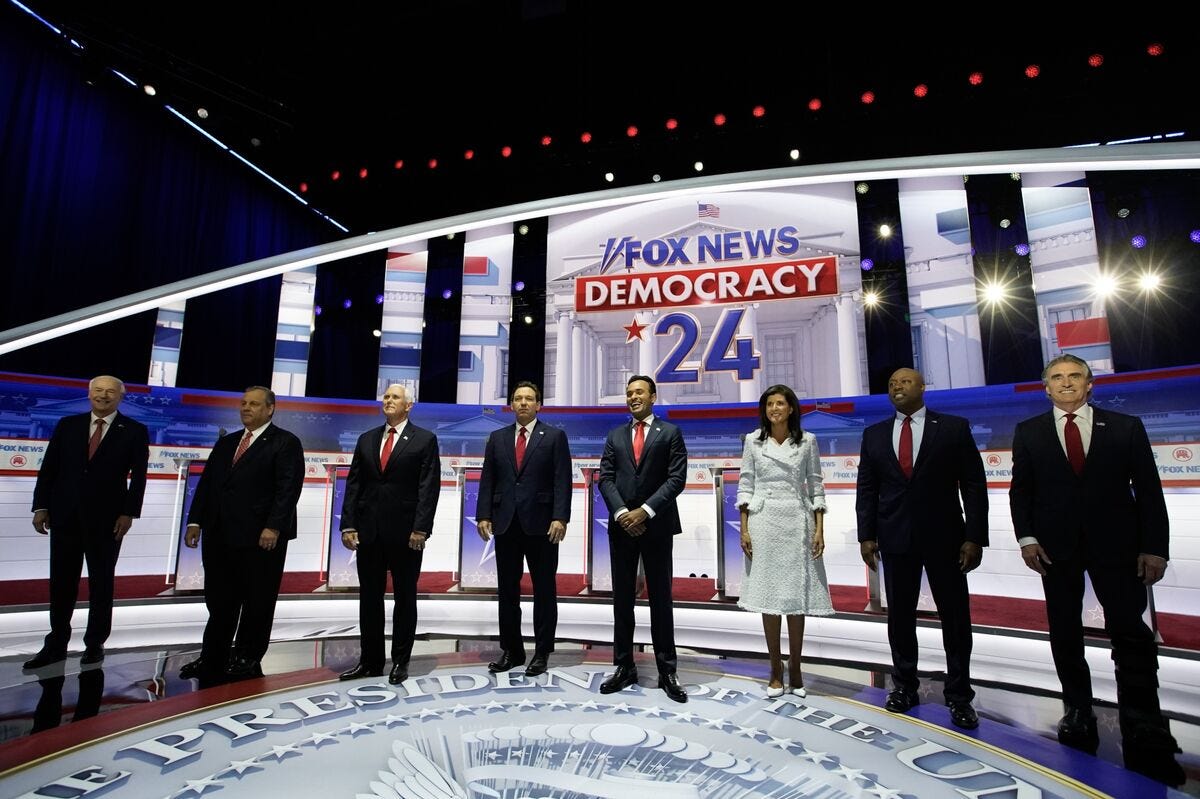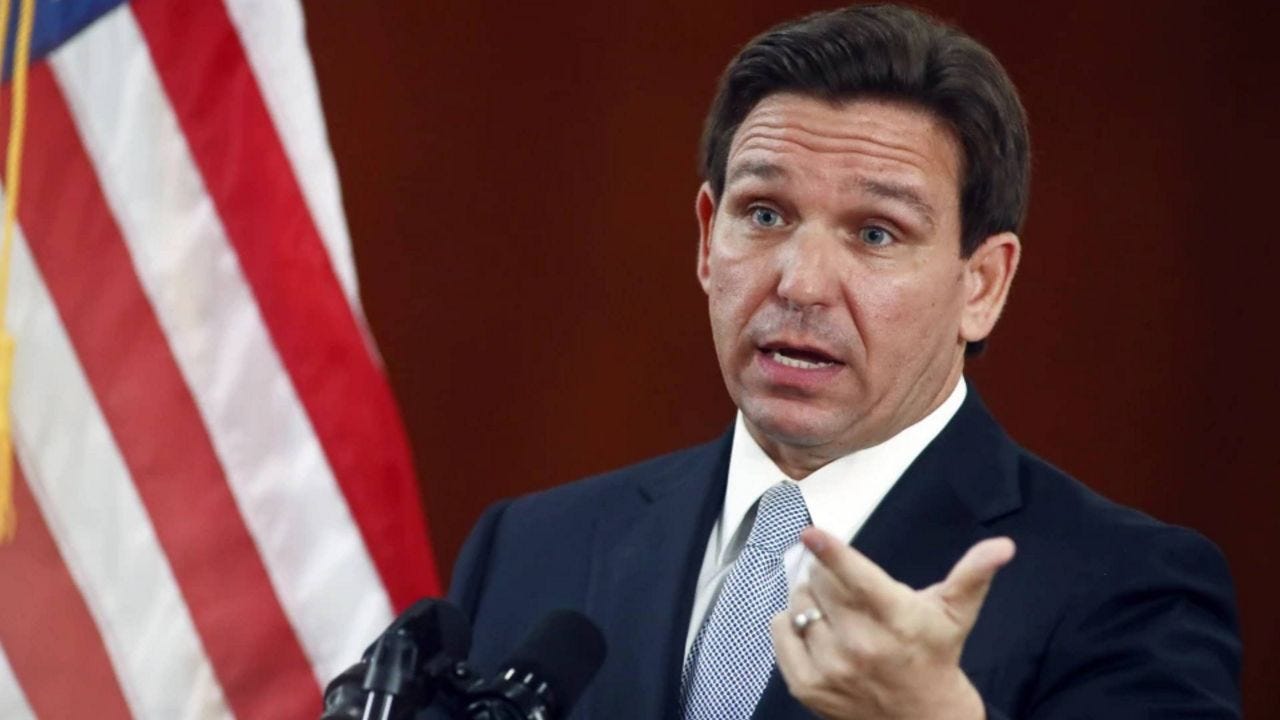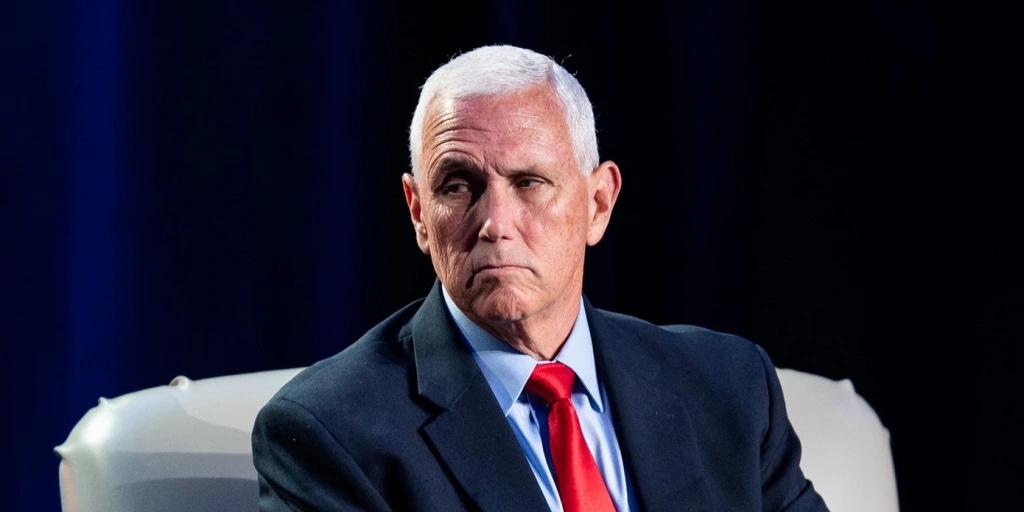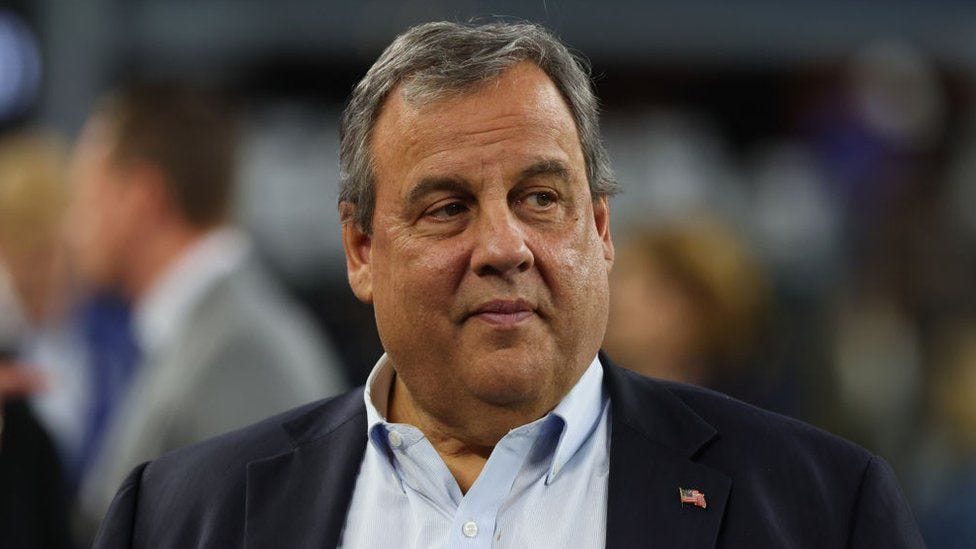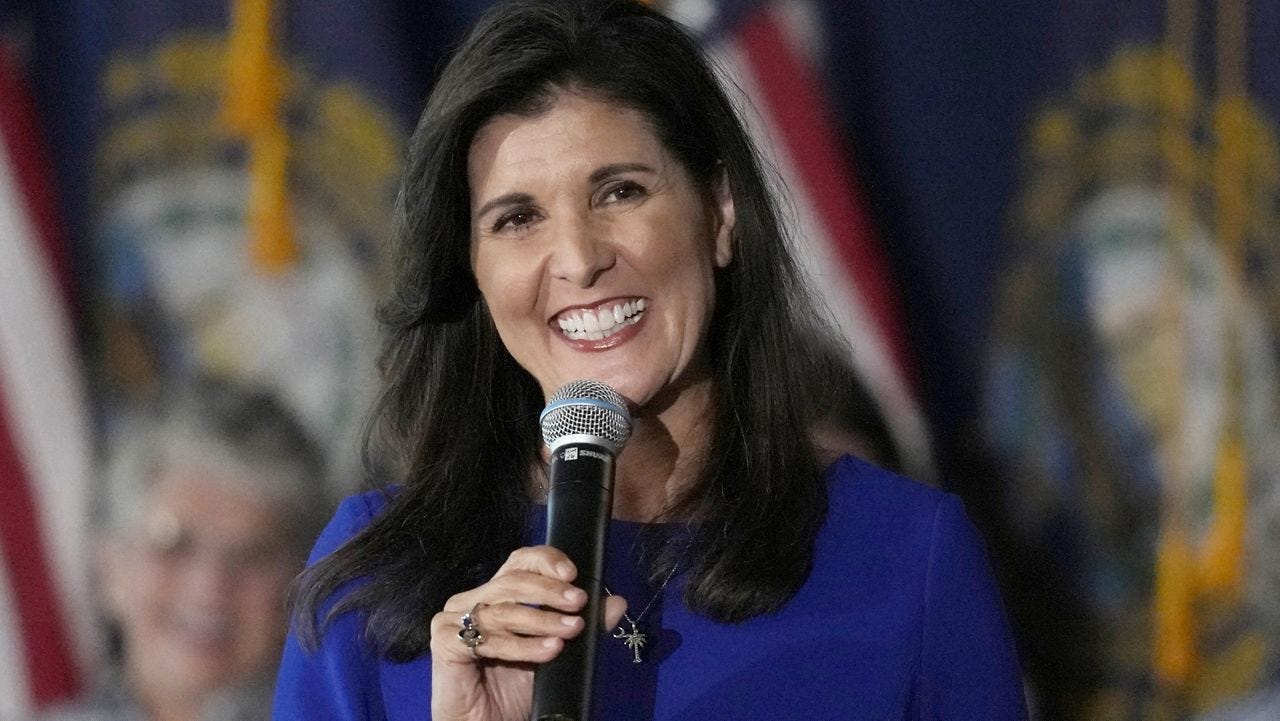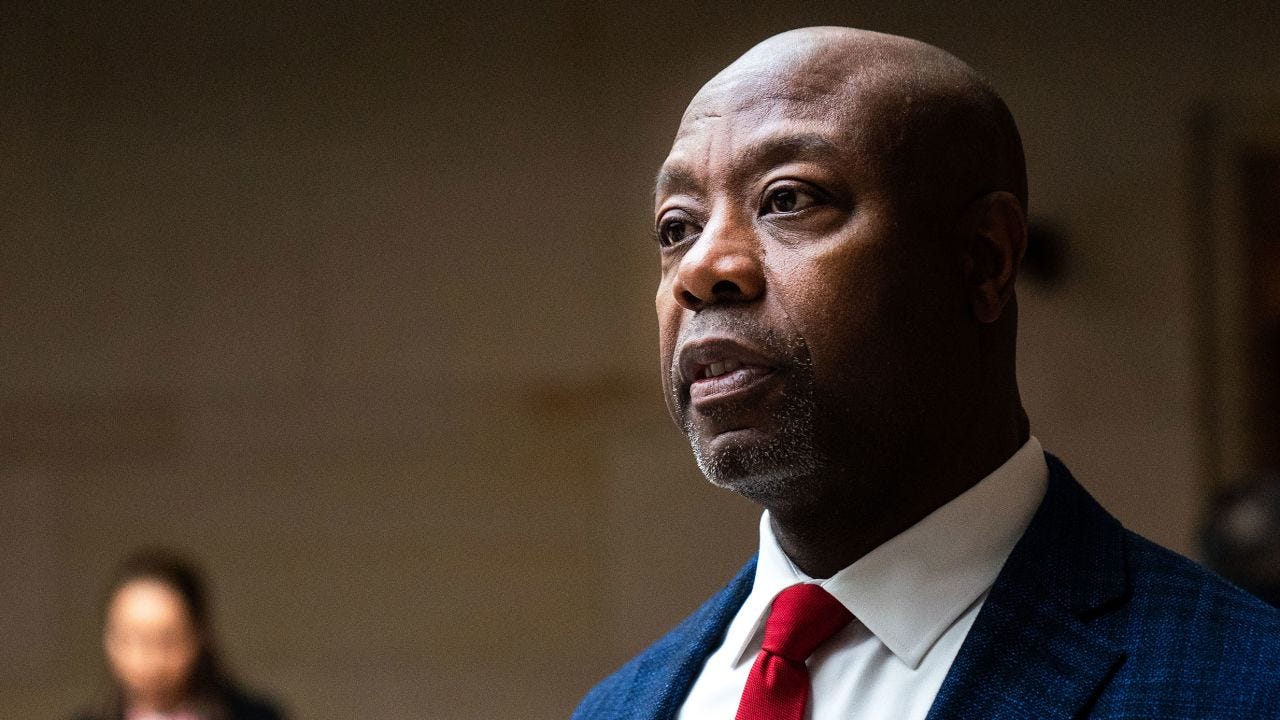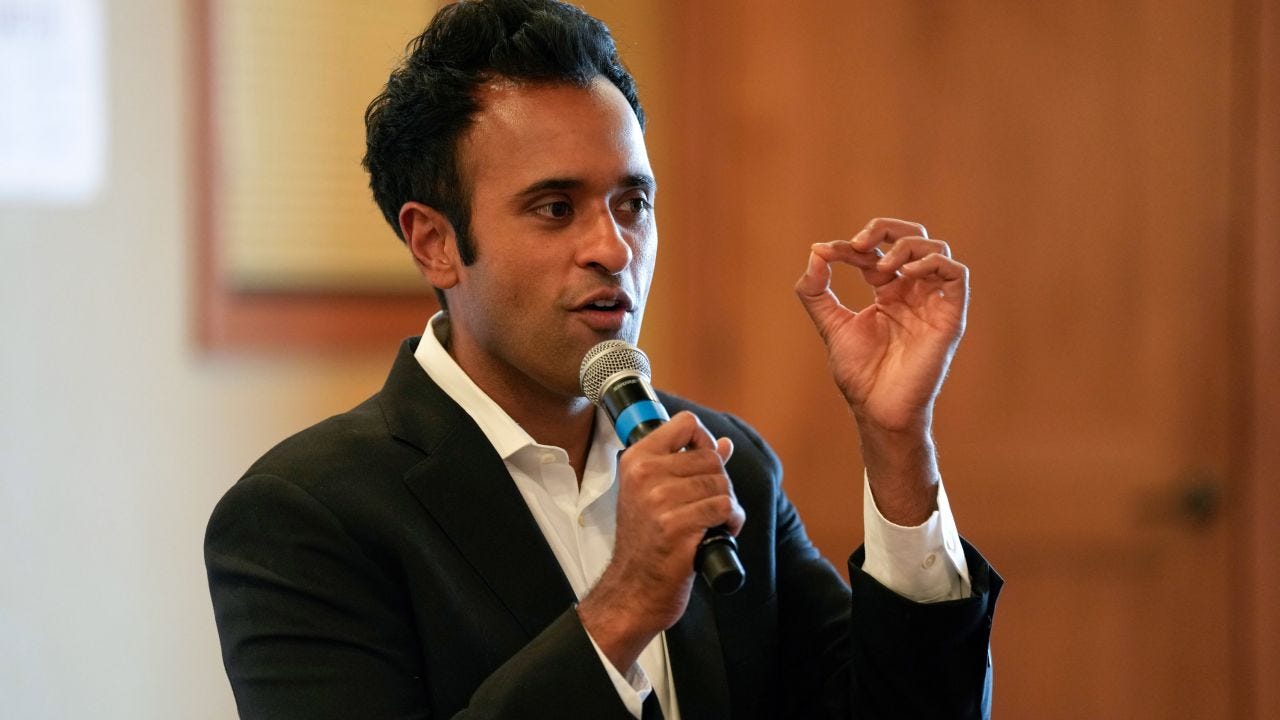Too Many Cooks Spoil The Broth
With the entry of Francis Suarez, the Republican primary has now ballooned to 15 candidates. But with Trump so high in the polls, how do these candidates hope to break his iron-like grip on the party?
In a surprising parallel to the stacked 2020 Democratic Primary, more than a dozen conservatives have already entered the race for the Republican candidate, and additional candidates may still join them — creating a fractured field that could prevent voters who oppose Mr. Trump from coalescing around a single alternative, just as it did in 2016.
One only has to glance at the polls to begin to wonder what the strategy of these new contenders is. On average, Trump hovers between 50 and 60% support amongst Republican voters. His net approval ratings are also the highest in the party by a wide margin. DeSantis, once touted by parts of the Republican establishment as the only man who could actually defeat Trump, trails him by nearly 30 points, and that gap is only widening as the Florida Governor continues to make a number of embarrassing blunders.
Barring the possibility of him dying, it seems very likely that Trump will cruise through the Republican primary without any hindrances. So embedded is he into the party’s consciousness that it would be best compared to a cult of personality. Idolised as a messiah, simply criticising him is enough to end a Republican’s prospects in the modern-day GOP. That’s why the contenders are stuck in an awkward paradox - forced to defend his presidency in order to win over his supporters, but conscious they have to distance themselves enough for a chance to appeal to moderates in the general.
To make it easier to understand their motives, it would perhaps be easier to group the contenders into four distinct categories, based on their objectives - those running to defeat Trump, those running to be his VP, those running for a cabinet position in a future Republican administration, and those running simply to elevate their name recognition in the hope of selling a memoir.
The Contenders
Ron DeSantis
Since his election as Florida's governor in 2018, DeSantis has positioned himself as a national figure by championing far-right causes — and successfully turned the nation's largest swing state a distinct shade of red. Promising to “put on the full armor of God” in his fight for the religious right, DeSantis has centered his campaign on a social conservative agenda, pledging to battle what he called the left’s “woke mind virus.” Despite these advantages, however, DeSantis’ recent campaign stops have been nothing short of a disaster. The four-week abortion ban he signed in Florida a few months ago practically severed his chances of winning independents in a national election and his fight with Disney is turning into a gruelling sludge match, which the House of Mouse looks likely to win.
Mike Pence
As a former vice president and governor, Pence brings a lot of experience to the debate, and his socially conservative views can appeal to the evangelicals, a key electorate within the party. However, since his refusal to block Biden’s victory, his star has quickly faded with the party’s base, manifesting itself in his attempted assassination during the January 6th ‘insurrection’. Since then, he has largely fallen out of favour with his previous ally, preferring to chart out a new course for himself, warning of the dangers Trump poses to the GOP and to American democracy.
Chris Christie
With a -50% approval rating and virtually no voter base, Christie’s chances of winning the primary are nonexistent, even if Trump wasn’t in the picture. And he understands this, that’s why he has decided to convert his campaign into a kamikaze mission, aimed at destroying Trump’s brand in the party. From the way he talks on the debate stage, it is clear that Christie views himself as the sacrificial lamb, necessary to degrade Trump’s dominance in the party. If the former president suffers some humiliation on the debate stage or begins haemorrhaging support as a result of the attacks, Christie will count that as a victory.
The VPs-in-waiting
Nikki Haley
As a former governor and cabinet member, Haley combines executive experience, foreign policy chops, and maintains a close link to Trump’s administration as his UN ambassador. However, like all of the candidates below the top tier, Haley risks getting drowned out in a primary where Trump and DeSantis suck up most of the oxygen. And her shifting views on Trump after the Jan. 6 riot threaten her credibility in winning over Trump voters. If the Presidency proves to be a bar too high for her to climb, Haley may use her presence in the race to position herself for a VP consideration from one of the other candidates, or even Trump himself, though that looks unlikely due to her willingness to criticise her former boss who values loyalty above all else.
Tim Scott
A favourite of the party’s donor class, Scott has an inspiring story of being a living representation of the American Dream. Born into a working-class family, he worked his way up to become the first African-American senator in US history elected in the American South since Reconstruction. In the Senate, at times, he has positioned himself as a moderate, willing to compromise and work with members from across the House on an array of issues, ranging from comprehensive police reform to voting rights. On the campaign trail, he has been noticeably dulcet when speaking of Trump, suggesting that he may be angling for his VP slot.
The Technocrat
Vivek Ramaswamy
A few months ago, the name ‘Ramaswamy’ would have left most Republican voters looking bewildered. Nevertheless, ever since entering the race in March, the entrepreneur has slowly risen in the polls, with the most recent figures putting him around 5-7%, higher than three ex-governors and on par with a former vice president. An investor and a former pharmaceutical company CEO, Ramaswamy has launched an outsider campaign based largely on a critique of “wokeness” among corporations and other institutions, a topic that appeals to most primary voters. His proposals to shutter large parts of the government reinforced similarities between the former president and the political newcomer. They have both previously attacked specific agencies like the F.B.I. and large swaths of the civil service. Though his chances of winning the primary look unlikely, and he doesn’t tick many boxes that would make him an obvious VP selection, he may instead prefer to work in a future Republican administration, perhaps as the Secretary of Commerce due to his focus on technological competitiveness and job creation.
The Opportunists
Without a national profile, Burgum, Elder, Suarez, and Hutchinson are counting on making an impression in the party's primary debates — if they qualify. Devoid of a clear, distinct message, these candidates will be suffocated by the already crowded field. They may prefer to instead use their campaigns to catapult their careers into a political commentator or perhaps to sell a future book deal. Politics is, after all, a money-making business.


